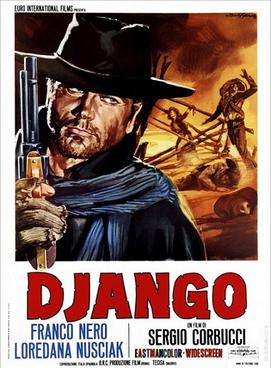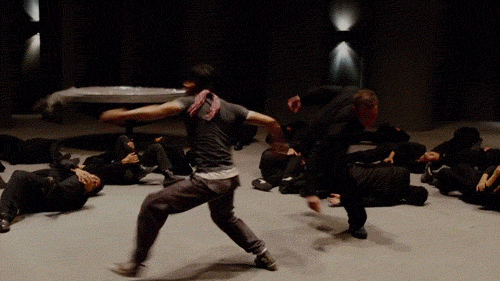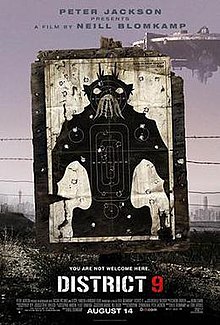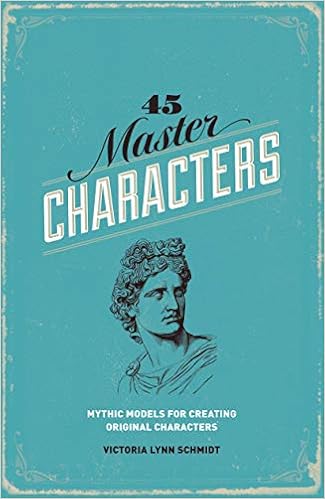Good morning, my fellow creatives! We’ve come, at last, to the midwest summer’s sunset.
Such are the days when decisions must be made. Quests must be completed. Evil must be thwarted before twilight takes us and all is lost.
Such are the days when a hero shows his mettle. Such are the days never to be forgotten, for they live on in the tales we pass from one generation to the next.
A hero ventures forth from the world of common day into a region of super-natural wonder: fabulous forces are there encountered and a decisive victory is won: the hero comes back from this mysterious adventure with the power to bestow boons on his fellow man.
Joseph Campbell’s Hero of a Thousand Faces
Seriously, why makes such heroes appeal to so many across so many cultures and time periods? Sure, Bilbo Baggins appeals because he’s nice and stuff, but what about this guy?

Clint Eastwood’s character in High Plains Drifter is not what one would call “likeable.” In fact, if there were ever an example of the anti-hero, it’d be this Man With No Name. He comes out of nowhere to an isolated seaside mining town and literally turns it red as Hell. As Eastwood himself explains:
“It’s just an allegory…a speculation on what happens when they go ahead and kill the sheriff and somebody comes back and calls the town’s conscience to bear. There’s always retribution for your deeds.”
James Neibaur, The Clint Eastwood westerns.
Well, that doesn’t sound like something Bilbo would do. That fellow was ready to halt his own adventure because he forgot a handkerchief, for goodness’ sake. But there is good reason to bring Bilbo and our Man With No Name together. See, when one studies storytelling, one sees certain archetypes transcend cultural and racial barriers. One such archetype is the outsider who brings change to the story’s world and its characters. This outsider does not follow that story-world’s code for justice, but their own, and in following their own code brings about the salvation—or damnation—of the story-world they encounter.
Now Bilbo fits this to a degree. I wanted to use this character as an introduction of sorts to this Hero talk because he does follow his own code no matter what others say or do, and he is, above all else, an Outsider to the ways of Dwarves, Burglary, Dragons, and War. While Bilbo’s skills change on this quest, he also brings about a change within Thorin, albeit late.

In High Plains Drifter, The Man With No Name does not change, not one bit. His very presence brings out the worst in the town: greed, lust, gluttony, jealousy. But above all else, the town is afraid, very afraid. Those they hired to kill the sheriff–and then immediately set up for arrest and imprisonment–have escaped their prison and are on their way for revenge. The townspeople hate Eastwood’s Outsider, the one who can kill with such ease, but they fear their past more. They realize too late The Man With No Name’s skills in manipulation are just as great as his skills with weapons, and by movie’s end the town burns bloody red in punishment for past sins.
Such is the way of the Punisher….or, the way of the Male Messiah.
As the Punisher, he’ll curse the man who has “fallen” to teach him a lesson. He wants to break the man’s ego. He’ll kill the man’s spirit to transform him into his image. He may try to justify himself to others, but they’ll never fully understand his power or the burden he carries.…the Male Messiah may not know of his connection to the Divine, but he may just be driven to accomplish something important. In this respect, he isn’t working on a spiritual goal. It seems his whole life is for one sole purpose and that purpose affects the lives of thousands of people… His character may not change, but others will change because of him.
Victoria Lynn Schmidt, 45 Master Characters
I’ve shared this book–and this quote!–when I was releasing my second novel, Fallen Princeborn: Chosen. Understanding the roots of such an archetype helps we writers better understand how a character who is not of our story’s setting, one who is driven by a cause–not a selfish cause per say, but a cause that in the character’s eyes will lead to salvation for those who matter. “Those who matter” will vary on the character: the Male Messiah feels all matter, while the Punisher will decide who matters.
In modern cinema, John Wick is a good example of a Punisher audiences root for. He left the assassin’s life to marry his love. He no longer has any part in the criminal underworld, and has found contentment in nature with his wife. His love eventually dies of illness, but left him a puppy to care for. A Russian mobster’s spoiled son steals Wick’s car and kills the puppy.
Unleash the vengeance.
Italy’s Django series is another fine example of this Outsider-Turned-Hero. Here’s a drifter with guns moving along the wild lands of the United States-Mexican border. His rules are his own–he means to kill the man who killed his lover. That a town is currently under the thumb of this man and would thrive if saved from this man is just a coincidence, really.

Django’s got his own rules, and even if his own hands are crushed, he WILL find a way to lay his enemies to waste. Cause above all.
Revenge for love stolen before its time is something we as readers and audiences can understand, even root for. John Wick doesn’t go off killing the doctors who couldn’t cure his wife, but he does destroy those who kill the innocent puppy his wife had gifted him in her will. In Thailand’s Tom yum goong (known in the United States as The Protector), Kham doesn’t go after an Australian gang just because the gang and its drugs are evil. His family has been protectors of the royal war elephant line for centuries, and Kham is content to continue this special life. When a Vietnamese gang leader kidnaps two of those elephants and takes them to Sydney, Kham hunts them down and lays waste to them, one gang member at a time, until the elephants are back in his care. Cause above all.

Australia’s Mad Max series–Mad Max 2/The Road Warrior, in particular–has Max seeking fuel, as all are seeking fuel in that desolate, dystopian place. When he hears there’s a refinery nearby with tons of the stuff, Max is ready to go grab some for himself no matter who else lives there. That the refinery is under siege by the Marauders makes no difference at first–the Marauders aren’t after Max, so Max doesn’t care. Max is just the Outsider in the situation, looking for his moment to benefit. That moment just so happens to line up with helping those in the refinery escape the Marauders’ siege.

Because this is another thing about that Outsider-Turned-Hero: the Outsider often has no stakes in whatever conflict is already in play in the story’s setting. He simply exists, and in this moment, his existence seems to be merely passing through. South Africa’s District 9, Japan’s Yojimbo, and Italy’s A Fistful of Dollars (which is just Yojimbo again, really, so one should look to For a Few Dollars More here). In District 9, Wikus is just a government worker doing his job: informing the alien race stuck on earth that their provided homes and lands are going to shrink even more. He is an Outsider to the alien culture but is dragged into the alien/human government conflict when he accidentally exposes himself to some of the fuel an alien father and son have been collecting. His body starts to change. He does not want to change. He only helps the aliens if it will mean he gets to be human again and return to his child. In the end, Wikus still changes into an alien, but he chooses to help the alien and his son escape because in Wikus’ eyes, the family code is more important than whatever humans deem right or wrong.

Yojimbo tells the story of a wandering rōnin–masterless samurai–who comes across a town suffering under the power struggle of two warring bosses. The rōnin plays both bosses against one another to ruin them and save the town. This definitely makes the protagonist look like the Male Messiah, but is he doing it because it is “right,” or because it’s just what he wants to do because he lives by his own code? I mean, Fistful of Dollars sees The Man With No Name play the bosses against one another as he gets paid by each. The Man makes some serious money…and happens to bring some peace to the town. The Man wasn’t there to be a Messiah. He was there with his own livelihood, his own cause, above all else, and that cause led to being both a Punisher and Messiah in this particular setting’s conflict.

And perhaps that is another reason so many of us across different times and cultures connect with that Outsider: he is not restrained by whatever individual societies dictate. He believes in his own code above all else; sometimes that code benefits others, sometimes not, but that code rarely tolerates others vying for power. The Outsider has nothing to lose in joining the fray, and sometimes nothing to gain, either, yet the Outsider joins in. Whether he is a warrior with the skills to take the evil down–
–or a quiet countryman who prefers the peace of his pipe in the garden, The Outsider steps in front of the oppressed, the innocent, us, and decides, Enough of this.

And that, my friends, is a hero we love to share from one generation to the next.
~STAY TUNED!~
I’m really excited to share my interview with Midwestern author Patricia Skalka! I recently reviewed the opening chapter of her book Death Stalks Door County on my podcast for Private Eye July. Check out this book and other awesome stories on Story Cuppings, a podcast where I take a sip from various tales to see if they fit the tastes of we picky readers and working writers. x
We also need to take a moment to ponder the place of everyday absurdity in our writing, as well as twins. Yes, twins. I was going to include this Native American legend I found about an Outsider here, but its connection with twins–and my own connection with twins–makes the subject too intriguing not to make its own post.
Read on, share on, and write on, my friends!


